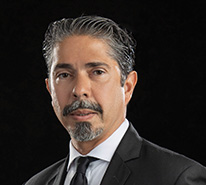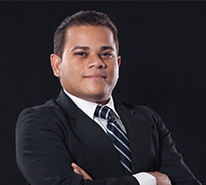Pellerano Nadal provides a brief glimpse into the Dominican Republic’s judicial system
The Dominican Republic is internationally known to tourists looking for white sand beaches, to investors and multinationals looking to develop projects or establish a presence in the country, or to manufacturers and distributors that have trade business with local counterparties. While these things are generally positive, as in any jurisdiction, sometimes conflicts may arise in these cases.
In the Dominican Republic, disputes that arise between parties are settled, depending on the matter, in: (i) jurisdictional and (ii) administrative.
(i) The common or ordinary law (not to be confused with common law as it is a civil law jurisdiction), is within the jurisdictional scope and includes Peace Courts, Courts of First Instance and Courts of Appeal. For labour matters, the Labour Courts of First Instance and Labour Courts of Appeal are competent. In the case of administrative disputes, the Administrative Dispute Court and the Superior Administrative Court are competent.
For all these branches within jurisdictional scope, there is the Supreme Court of Justice which is in charge of setting the guidelines of the jurisprudential criteria and examining only the proper application of the law without going into the facts. This court is composed by three chambers: the Civil and Commercial Chamber, the Criminal Chamber and the Labour, Land, Administrative and Tax Chamber.
For constitutional actions, any Court of First Instance may act as a Constitutional Court and any related appeal may be brought to the Constitutional Court under the constitutional remedy, where only the breach (or not) of a constitutional right is analysed.
(ii) In the administrative jurisdiction, it is the competence of the public entities (mandataries of the executive branch), to receive complaints, petitions, reconsiderations, and hierarchical appeals filed by individuals or entities against the acts issued by such institutions, which, by virtue of the petitions or appeals, make the decision to modify, reiterate, or revoke their administrative acts.
To provide the necessary support before a dispute that may or may not give rise to a jurisdictional or administrative trial, or even in arbitration matters, the dispute resolution practice of Pellerano Nadal has lawyers with more than three decades of experience in the Dominican Republic, who have the expertise and skills to assist national and international clients in any negotiation that arises in the course of their commercial activities. Therefore, we have the expertise to mediate any complex and high-impact dispute or litigation, combined with a business approach, for the benefit of our clients’ interests, with the purpose of avoiding and identifying the risks involved in these proceedings, ensuring a successful conclusion to the dispute. We do not limit our practice to the courts, as we have a broad vision and crisis management approach that allows us to guide our clients towards an appropriate and assertive public relations management in the face of any nature of conflicts that may arise.
In recent years, the Dominican legal framework has undergone modifications and innovations with the aim of pursuing efficiency, quality, and the correct practice of dispute resolution laws. Our constitution was amended in 2010, with the objective of strengthening Dominican political institutions, creating an electoral jurisdiction, recognising certain fundamental rights, such as the right to life from conception, and the creation of the Constitutional Court as a supra-jurisdictional body.
Most recently, Law no. 2-23 was enacted to create a new process of the appeals remedy before the Supreme Court of Justice, which allows the review of the applicable law in the decisions issued by the lower courts, a regulation that aims to introduce significant changes in the actions of the chambers that make up this court.
This new law aims to make the judicial procedure before the Supreme Court of Justice more efficient and dynamic. To this end, a procedure is established that eliminates the suspensive effect of the appeal, the delays due to the inactivity of the parties or due to the constant sending to the lower courts, and the holding of unnecessary hearings only for the fulfillment of the old inefficient protocol.
A few years ago, the Criminal Procedure Code was amended and among its novelties, we can mention the maximum extension to four years of judicial proceedings, and it grants the power to any person to file a complaint against the faults committed by public officials.
The team
Our dispute resolution practice is led by partner, Gustavo Mena García, who has wide experience in all kinds of dispute matters, both in main and incidental proceedings, as well as in environmental law, with more than three decades of practice. García has irrefutable expertise in handling and resolving conflicts by any legal means required.
Senior associate, B. Genesis Rodriguez, is also part of the team and has experience in the areas of constitutional, environmental and administrative law. Her practice encompasses both litigation and regulatory and compliance matters, advising clients on areas such as labour, advertising, data privacy, consumer rights, taxation and customs, free trade zones and aviation law.
The disputes team is further complemented by three associates: Sekira Hernández, who has been recognised by The Legal 500 in the past for dispute resolution. Hernández focuses her practice in general litigation matters and, in recent years, has also focused on labour and environmental law.
Carlos Matos concentrates his legal practice in the areas of succession, administrative and taxation law, and has also assisted various clients in foreign investment projects, other litigation proceedings and environmental law.
Jean Franco focuses his legal practice in the areas of environmental law, environmental criminal law, environmental constitutional actions, and general litigation proceedings. Franco also assists clients with immigration law matters.
Furthermore, the team includes experienced paralegals, José Agüero and Ricardo Sánchez, who assist the lawyers with the necessary support in order to provide an exceptional client service experience.
And with this, we say goodbye from an island in the Caribbean, giving you a brief glimpse into our judicial system and hoping that you are never in a conflict in this beautiful place; but if you are, do not hesitate to reach out.
Return to the Disputes Yearbook 2023 menu
Subscriber Access
You must be logged in to view full premium content.
Links













